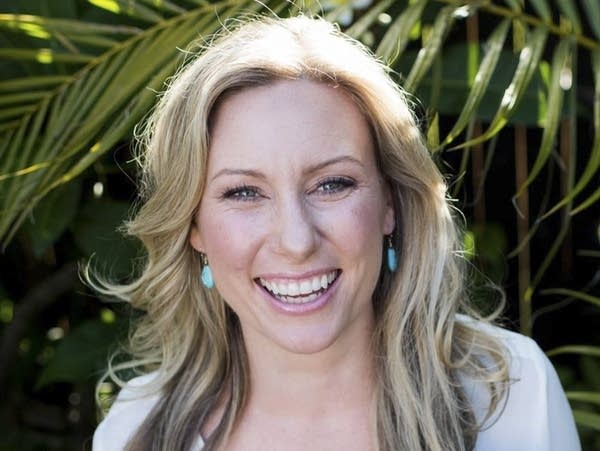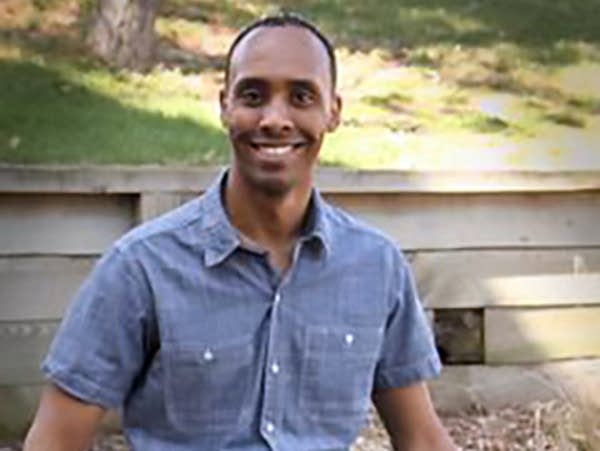'Justine didn't have to die': Harteau slams cop who shot 911 caller

Officer Mohamed Noor's actions the night he shot and killed Justine Ruszczyk run contrary to Minneapolis police training and expectations, Chief Janee Harteau said Thursday, adding, "Justine didn't have to die."
In her first extended remarks since the shooting, Harteau criticized Noor's decision to shoot as the "actions of one individual."
Asked if the shooting was legally unjustified, she replied, "the death of Justine should not have happened."

Harteau also announced intentions to boost training and technology on police body cameras and their use. One of the many questions surrounding Noor's shooting of Ruszczyk, known professionally as Justine Damond, was why the officers didn't activate their cameras.
Create a More Connected Minnesota
MPR News is your trusted resource for the news you need. With your support, MPR News brings accessible, courageous journalism and authentic conversation to everyone - free of paywalls and barriers. Your gift makes a difference.
The chief said she believed the officers in this incident should have activated their body cameras. Earlier in the day, Mayor Betsy Hodges said she expected body cams "will be active the moment an officer begins responding to a call" and "should have been on in a case like this."
Ruszczyk called police at 11:27 p.m. Saturday night to report that she thought she'd heard a female yell help outside her home in the city's Fulton neighborhood, telling the 911 operator she was worried that a woman was being attacked. Minutes later she was dead, shot and killed by Noor, one of the responding officers.
A preliminary Minnesota Bureau of Criminal Apprehension report said Noor was in the passenger seat of the squad while his partner, officer Matthew Harrity, was driving. They drove through an alley near Washburn and Xerxes Avenues with all their car's lights off. Harrity reported being "startled" by a sound coming from near their squad car, the BCA said. Right after, Ruszczyk reportedly came near the squad's driver's side window.

The BCA didn't make clear what if anything else happened before Noor fired his weapon, fatally striking Ruszczyk in the abdomen. The cops got out of their car and gave medical attention right after the shooting, according to the agency.
Harteau said she based her criticism of Noor's actions on the preliminary review of BCA investigators.
Despite that criticism, Harteau told reporters that Noor, on the force for less than two years, had "absolutely" performed well in his field training and was "very suited to be on the street."
She said Noor has not talked to the BCA, nor has he talked with the department's internal affairs unit. While that's his right, she said she would "prefer" Noor speak to the BCA or internal affairs about what happened. "There are questions that need to be answered."

Questions have been raised about whether the relative lack of experience of Noor and Harrity, who's been on the force for a year, might have contributed to the tragedy.
However, data from past fatal police shootings in Minnesota show that inexperienced officers are not more likely than veteran cops to pull the trigger.
MPR News has collected data on fatal police shootings stretching back 36 years. Much of that data was collected by former FBI agent Larry Brubaker, an author who researched officer involved shootings between 1981 and 2010. The average length of experience for officers involved in the cases he collected was 10 years.
An examination of available information on five previous fatal police shootings from this year found that the majority of officers involved had more than 10 years of experience.
Harteau on Thursday also responded to criticism that she did not return immediately to the city after the shooting. She said she was on personal time, backpacking in a remote mountainous area and had attempted to return.
She said while she has not talked directly to Noor, she has reached out to the department's Somali-American officers as well as to leaders in the city's Somali community. "It's about an individual officer's actions, not about race and ethnicity," she said.
She also recounted a conversation she had with Ruszczyk's fiance, Don Damond. Harteau said she told him she was sorry for his loss and that it did not have to happen.